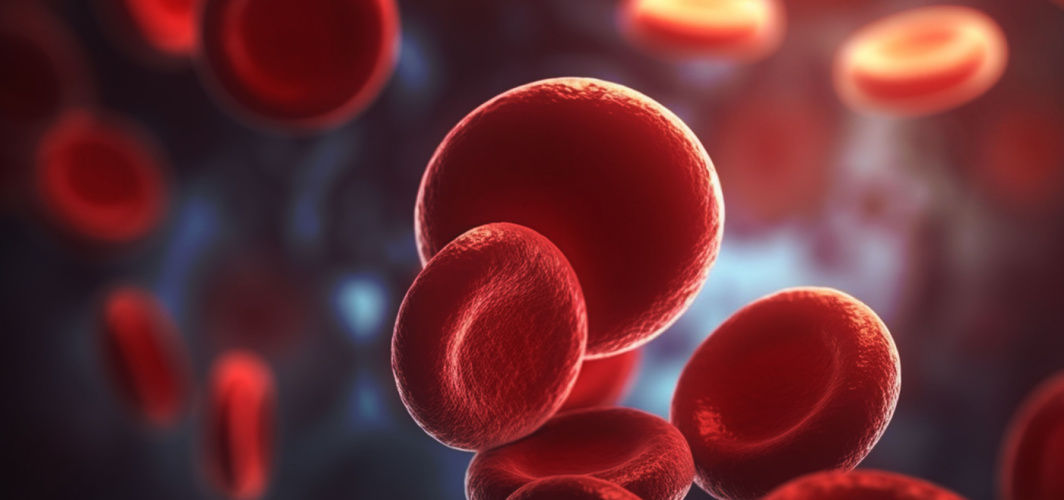General Health
Signs and Symptoms of Vitamin D3 Deficiency: Know What To Look Out For
6 min read
By Apollo 24|7, Published on - 19 June 2023, Updated on - 22 August 2024
Share this article
0
0 like

Vitamin D3, called "cholecalciferol", is vital for our body to stay healthy and perform various bodily functions. Vitamin D3 dissolves in fat and is synthesised in the skin upon exposure to sunlight or obtained through certain dietary sources. This vitamin is then converted into an active hormone that helps regulate calcium and phosphorus levels in the body, promoting optimal bone health and supporting various physiological functions.
It is a fact that most people are vitamin D deficient, which results in various health problems including pain in the bones, joints, and muscles, and weakness and tiredness. If you're experiencing these symptoms, getting tested is a good idea. Also, learning more about vitamin D deficiency symptoms and how to treat them will help.

Why Is Vitamin D3 Important For The Body?
Vitamin D helps our bodies absorb calcium and phosphorus, which are important for strong bones. Vitamin D also strengthens our immune system, protecting us from infections and diseases. It supports our muscles, making them perform well and reducing the impact of trauma after falls. There are two types of vitamin D: vitamin D2 and vitamin D3. We can get them from food, sunlight, and supplements.
What Is Vitamin D3 Deficiency?
Sun exposure and vitamin D-rich foods are important to maintain the levels of this vitamin in the body. However, due to the sun's harmful UV rays, it is not recommended to stay in the sun for too long. This leads to a deficiency of vitamin D in the body, which affects our bones, immune system, mood, and other aspects of our health.
Who Is At Risk For Vitamin D3 Deficiency?
Vitamin D3 deficiency can affect people of all ages and backgrounds. However, those who are at increased risk include:
- Individuals with limited sun exposure
- Older adults, people with darker skin, and those with obesity
- Those with medical conditions affecting fat absorption or liver function
- Infants who are exclusively breastfed
- Those who underwent gastric bypass surgery or suffer from conditions affecting the gut
Vitamin D3 Deficiency Signs And Symptoms
Vitamin D deficiency can manifest through various signs and symptoms, varying from mild to severe. Common physical manifestations include:
- Bone and Muscle Pain: Vitamin D deficiency leads to the malabsorption of calcium and phosphorus, causing weak bones and muscles and pain and discomfort.
- Fatigue and Weakness: Low vitamin D levels affect energy metabolism, resulting in fatigue and weakness.
- Impaired Wound Healing: Inadequate vitamin D impairs the body's ability to heal wounds effectively.
- Frequent Infections: Insufficient vitamin D weakens the immune response, increasing susceptibility to infections.
Non-physical symptoms may include:
- Mood Changes and Depression
- Impaired Cognitive Function
- Sleep Disturbances
Some of the severe symptoms include:
- Severe Bone Pain
- Fragile Bones and Increased Risk of Fractures
- Loss of Muscle Mass
- Development of Osteoporosis and Osteopenia
- Increased Risk of Cardiovascular Disease and Diabetes
Also read: Your Weight Can Influence Vitamin D Absorption In Your Body! Know How
Vitamin D3 Deficiency Causes
Vitamin D deficiency can result from various factors, including:
- Inadequate sunlight exposure: Limited exposure to sunlight, especially in regions with long winters or indoor lifestyles, can reduce vitamin D synthesis.
- Insufficient dietary intake: A diet lacking vitamin D-rich foods, such as fatty fish, fortified dairy products, and egg yolks, can contribute to deficiency.
- Medical conditions: Certain health conditions, including malabsorption disorders (e.g., inflammatory bowel disease), liver or kidney diseases, and obesity, can impair vitamin D absorption or utilisation.
Vitamin D3 Deficiency Diagnosis
Diagnosing vitamin D deficiency typically involves a combination of blood tests, laboratory analysis, and medical evaluation.
1. The process begins with a healthcare professional assessing your medical history, symptoms, and risk factors. They may inquire about your lifestyle, diet, sun exposure, and any existing medical conditions.
2. Blood tests are commonly used to measure vitamin D levels in your blood. The most common test is called the 25-hydroxyvitamin D test (25(OH)D), which determines the concentration of vitamin D3 (cholecalciferol) and vitamin D2 (ergocalciferol) in your blood. This test provides an accurate assessment of your vitamin D status.
3. Laboratory analysis involves interpreting the results of the blood test. The normal range for vitamin D levels may vary depending on the laboratory, but generally, levels below 20 ng/mL (nanograms per milliliter) are considered deficient, while levels between 20-30 ng/mL may indicate insufficiency.
However, it's important to consult with a healthcare professional who can provide proper interpretation based on your circumstances.
Vitamin D3 Deficiency Treatment
The deficiency of vitamin D3 can be treated by:
1. Getting regular sunlight exposure: Spend time outdoors to allow your skin to produce vitamin D when exposed to sunlight. Be cautious not to overexpose or burn your skin, and consider local climate and UV index.
2. Consume vitamin D-rich foods: Fatty fish (salmon, tuna), fortified dairy products, egg yolks, and mushrooms.
3. Consider vitamin D supplements: If you have limited sun exposure or dietary intake, talk to your healthcare provider about vitamin D supplements. Commonly used supplements include vitamin D3 (cholecalciferol) and vitamin D2 (ergocalciferol). The dosage and duration of supplementation will vary based on individual needs.
How Can I Prevent Vitamin D3 Deficiency?
Here are some tips and recommendations to prevent vitamin D deficiency:
- Consume vitamin D-fortified foods
- Perform outdoor exercises for sunlight exposure
- Maintain a healthy weight by exercising for at least 30 minutes regularly
- Consult a healthcare professional for personalized guidance
When To Consult A Doctor?
Indications that warrant consulting a doctor for vitamin D deficiency include:
- Persistent symptoms like pain in the joints and muscles despite lifestyle changes or supplements
- Belonging to high-risk groups for vitamin D deficiency
- Having underlying medical conditions that affect vitamin D metabolism or absorption
- Taking medications that may interact with vitamin D absorption
- Being pregnant or breastfeeding
Takeaway
Vitamin D deficiency is a prevalent condition that often goes unnoticed. If you experience symptoms of the deficiency, it is advisable to seek medical attention. Additionally, it is crucial to consult a healthcare professional before exceeding the recommended daily intake of vitamin D supplements.
Medically reviewed by Dr Sonia Bhatt.
General Health
Frequently Asked Questions
Are Vitamin D Supplements Safe?
Are Vitamin D Supplements Safe?
How Much Vitamin D Do I Need?
How Much Vitamin D Do I Need?
Which is Better, vitamin D2 or D3?
Which is Better, vitamin D2 or D3?
Can Low Vitamin D Cause Leg Pain?
Can Low Vitamin D Cause Leg Pain?
Who Should Not Take Vitamin D Supplements?
Who Should Not Take Vitamin D Supplements?
Leave Comment
Recommended for you

General Health
Home Remedies To Cure Anal Fissures Permanently
Anal fissures are a common problem that occurs due to constipation and passing of hard stools. However, the concern is how long do fissures take to heal? And can anal fissures heal on their own?

General Health
All You Need To Know About Nipah Virus
Nipah virus (NiV) transmits from animals to humans, primarily through fruit bats. Symptoms of a Nipah virus infection vary from mild to severe and there's no cure or vaccine. The treatment focuses on symptom management and you can take certain precautions to prevent Nipah virus infection.

General Health
Blood Disorders: Types, Symptoms & Treatments
Learn about different types of blood disorders, their symptoms, and the latest treatments available. Stay informed and take control of your blood health!
Subscribe
Sign up for our free Health Library Daily Newsletter
Get doctor-approved health tips, news, and more.
Visual Stories

Science-backed Home Remedies for Burns and Blisters
Tap to continue exploring
Recommended for you

General Health
Home Remedies To Cure Anal Fissures Permanently
Anal fissures are a common problem that occurs due to constipation and passing of hard stools. However, the concern is how long do fissures take to heal? And can anal fissures heal on their own?

General Health
All You Need To Know About Nipah Virus
Nipah virus (NiV) transmits from animals to humans, primarily through fruit bats. Symptoms of a Nipah virus infection vary from mild to severe and there's no cure or vaccine. The treatment focuses on symptom management and you can take certain precautions to prevent Nipah virus infection.

General Health
Blood Disorders: Types, Symptoms & Treatments
Learn about different types of blood disorders, their symptoms, and the latest treatments available. Stay informed and take control of your blood health!